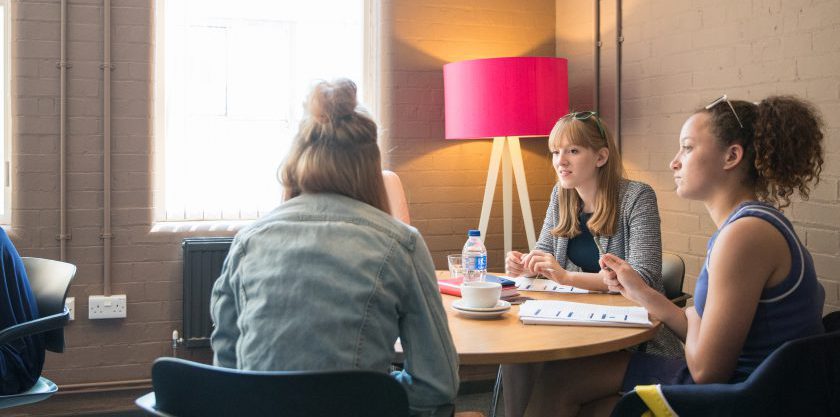
January 27, 2015, by Jackie Thompson
Group Exercises: What Do Employers Look For?
By Sarah Allen, Employability Education Projects Officer
Graduate employers often use a group exercise during their assessment centre process. These normally involve a group of four to eight applicants completing a task in a set amount of time. You will have an assessor recording what you say and do throughout the task and this information will be used, with evidence from other exercises, to assess your suitability for the role you have applied for.
What types of group exercises are there?
A graduate employer may choose to use an exercise related to the business that you are applying for. For example, if you applying for a management consulting role you might be asked to read a case study and, as a group, come up with some recommendations for the business. Alternatively, some organisations opt for a negotiation task where you will be assigned a particular role and have to use your influencing skills before reaching a group consensus. Group tasks might also involve something practical or ‘off the wall’ such as building a tower from newspapers, figuring out how something works or a simple discussion task. You might not be told exactly what to expect on the day so be prepared for anything.
Why do employers use group exercises?
Being able to work in a team to achieve a result is an important aspect of many graduate level roles. Recruiters are keen to see which individuals can build alliances and work with others, under pressure, to a tight deadline. Group tasks also enable recruiters to assess skills which are difficult to evidence elsewhere in the recruitment process.
What are employers looking for?
Most employers will, when they invite you to an assessment centre, let you know which competencies and skills they are interested in. These will be specific to their organisation but often communication skills, team work, leadership, problem solving and organisational skills are important and might be assessed in the task too.
Applicants often focus in on the leadership aspect but remember, other skills are also being assessed and you should try to demonstrate that you can work with others, manage your time and positively influence the group without being too loud or alienating anyone!
If you are assigned a role in a negotiation task you will need to demonstrate that you can present a logical argument and answer challenging questions. However, you should also be able to spot when to compromise on a task in order to reach a group consensus in the allocated time.
Top tips from recruiters
We asked some graduate employers for their top tips for group exercise assessments:
- Take a step back and consider what you’re being assessed for. Recruiters aren’t looking for pushy people who rush to the limelight, we’re looking for team players who listen to each other but aren’t afraid to put their own opinions forward (Shearman & Sterling LLP).
- Keep an eye on the time and stay focused on the overall objective, from time to time try to summarise the group’s progress (Morgan Stanley).
- Contribute enough for an assessor to get some evidence on your performance and think about the job you have applied to. If it’s a financial services role, you will be expected to demonstrate your ability to work with numbers and make calculations. Don’t sit back and let someone else do the finances, each group member should do them and then discuss what your findings are (PwC).
- Be themselves! We have enjoyed listening to them talk to us about their strengths – in the assessment centre we want to see them up close and personal (EY).
Want to know more?
Watch At the assessment centre video which has a section devoted to a group discussion. You’ll need to login to Workspace using your University details to view it.
No comments yet, fill out a comment to be the first

Leave a Reply